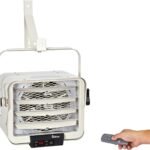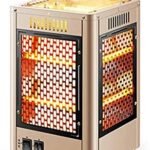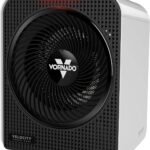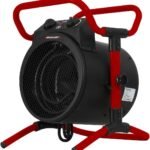So, you’re interested in learning about how swiftly a tankless water heater can do its job? Well, brace yourself because you’re about to unravel some fascinating details about this gadget that’s often underestimated but is steadily becoming an indispensable appliance in modern homes. The process of heating water is no longer just about filling up a kettle and sticking it on a stove, but it’s about integrating modern technology that boosts efficiency and effectiveness, and that’s exactly what a tankless water heater brings to the plate. In this article, you’ll discover the nuts and bolts of how speedily a tankless water heater can heat up your water, giving you the comfort and convenience you deserve.
Understanding Tankless Water Heaters
When looking at home water heaters, you might have come across the term “Tankless Water Heaters”. But what exactly does that mean?
Definition of tankless water heaters
A tankless water heater is a type of water heater that heats water directly as it flows through the device, without any need for a storage tank to hold hot water. It’s also commonly referred to as a demand-type or instantaneous water heater.
Differences between tankless and traditional water heaters
Traditional water heaters heat water in a storage tank, which can lead to a delay in hot water availability and energy loss through standby heat loss. In comparison, tankless water heaters provide immediate hot water as it’s needed and are generally more efficient, as they circumvent the need for continuous heating of stored water.
How tankless water heaters work
Tankless water heaters work by heating water directly on demand. When a hot water tap is turned on, cold water travels through a pipe into the heater. In an electric unit, an electric element heats the water, in a gas unit, a gas burner does the job.
Factors Influencing Heating Time of a Tankless Water Heater
Heating time of a tankless water heater can vary due to several factors.
Water flow rate
The flow rate of water through the heater influences the heating time. A higher flow rate means the water spends less time in the heating element, which could result in less hot water.
Temperature of incoming water
The temperature of the incoming water is another critical factor. If the water is very cold to begin with, it takes more time to heat it to the desired temperature.
Size and capacity of the heater
The size and capacity of the heater can also affect the heating time. Bigger units can handle higher volume of water and therefore, can heat water faster.
Electric vs Gas tankless heaters
The type of heater also makes a difference. Typically, gas heaters heat water faster than electric ones, though they can be more expensive to operate.
Quality and condition of the heater
Lastly, the efficiency of your heater can decline over time due to wear and tear, resulting in increased heating time.
Average Heating Time for Tankless Water Heaters
One of the main advantages of tankless heaters is their ability to provide hot water instantaneously.
Instantaneous heating properties of tankless heaters
Tankless heaters are designed to provide hot water on demand. This means, they start heating water as soon as you turn the tap on. This eliminates the waiting time associated with traditional water heaters.
Factors affecting the heating speed
While tankless heaters should provide instantaneous hot water, factors such as water flow rate, incoming water temperature, and size of the heater can affect the heating speed.
Comparison with traditional water heaters
In comparison, traditional water heaters require a buffer time to heat up the water in the storage tank. In addition, once the stored hot water is used up, you need to wait for the water heater to heat up more water.
Testing Your Tankless Water Heater’s Heating Time
If you’ve noticed your hot water isn’t as hot as it used to be or the hot water supply is inconsistent, it might be time to test your unit.
Tools and equipment you need
You’ll need a thermometer and a timing device, like a stopwatch or a timer on your phone, to test the heating time.
Steps to determine heating time
Turn on the hot water tap and start the timer. Collect water in a container and monitor the temperature with a thermometer. Stop the timer when the temperature reaches your preferred hot water temperature.
Safety precautions
Remember, be cautious when dealing with hot water to avoid burns. Also, ensure you do not spill water on the heater or any electrical outlets.
Improving Tankless Water Heater Efficiency
To keep your tankless water heater running at its best and reduce heating time, there are a few factors to consider.
Regular maintenance
Like any appliance, regular maintenance can dramatically improve the efficiency and lifespan of your heater.
Optimal water flow rate
Setting the water flow rate to match the optimal rate indicated in the heater’s user manual can enhance its performance.
Proper installation and usage
Improper installation can affect the efficiency of your water heater. Likewise, overusing or underusing your heater can lead to inefficiencies.
Recirculation systems
Consider using a recirculation system to keep the hot water circulating in your pipes, so you get hot water instantly when you open the tap.
The Benefits of Using a Tankless Water Heater
There are several advantages of using a tankless water heater.
Energy and cost savings
Tankless heaters are more energy-efficient because they eliminate standby heat loss that occurs in traditional water heaters. This translates to lower energy bills.
Consistent hot water supply
You’ll never run out of hot water with a tankless heater because it heats water on demand.
Space efficiency
Tankless heaters are compact in size compared to traditional heaters, saving valuable space in your home.
Longevity
Finally, tankless heaters usually last longer than their traditional counterparts.
Potential Problems With Tankless Water Heaters
While there are many benefits, there are also a few potential drawbacks to consider.
Initial high cost
Tankless heaters generally cost more upfront than traditional water heaters, but can pay for themselves over time in energy savings.
Inconsistent water temperatures
If you’re feeding multiple outlets simultaneously, you might experience inconsistent water temperatures.
Limited flow rate
While they provide hot water on demand, the flow rate might be lower than that of a traditional water heater, especially if servicing multiple outlets.
Complicated installation and maintenance
Installation of a tankless unit can be more complicated and expensive than a traditional one. Regular maintenance might also require professional help.
Choosing the Right Tankless Water Heater for Your Needs
Choosing the right heater will largely depend on your water usage and preference.
Determining your hot water demand
The first step is to calculate the amount of hot water you typically use at peak times. This can help you determine the size and capacity of the heater you need.
Deciding between electric and gas heaters
Electric heaters are generally cheaper and easier to install, but may not heat water as quickly as gas heaters.
Understanding different brands and models
Different brands and models offer different features, so it’s essential to do some research and understand what each model offers.
Considering environmental factors
If you are trying to reduce your carbon footprint, an eco-friendly model might be the best fit for your needs.
Installation and Maintenance of Tankless Water Heaters
Once you’ve decided on a model, installing and maintaining it are crucial next steps.
Installation process
Proper installation can greatly affect the efficiency and lifespan of your heater. It’s best to have a professional installer handle this task for you.
Regular maintenance tasks
Like other appliances, your heater requires regular maintenance to operate efficiently. This can involve descaling it, checking for leaks, and inspecting the venting system.
Troubleshooting common issues
Learn to troubleshoot common problems like inconsistent temperatures and low flow rate to make the most of your heater.
When to call a professional
Do not hesitate to contact a professional if you encounter any issues or if you’re uncomfortable performing any maintenance tasks yourself.
The Future of Tankless Water Heaters
There are several exciting trends in the world of tankless water heaters.
Technological advancements
With technological advancements, future models are expected to be even more efficient, reliable, and user-friendly.
Increasing popularity and usage
The popularity of tankless water heaters is on the rise due to their numerous advantages. As more people shift towards these heaters, manufacturers are likely to continue innovating in this space.
Environmental impact and sustainability
The minimal energy wastage of tankless heaters aligns well with increasing global focus on sustainability and reducing carbon footprint. Future models will likely continue this trend of eco-friendliness.
Available and upcoming models and features
Keep an eye on the market for new models and features that can best meet your hot water needs. Some may offer remote control features or improved safety mechanisms.
In conclusion, while it’s true that a tankless water heater might take some time to heat the water initially, they more than make up for it with their efficiency, longevity, and the convenience of having hot water right when you need it. The decision of whether to go for a tankless water heater or stick to the traditional type depends completely on your specific requirements and preferences.









